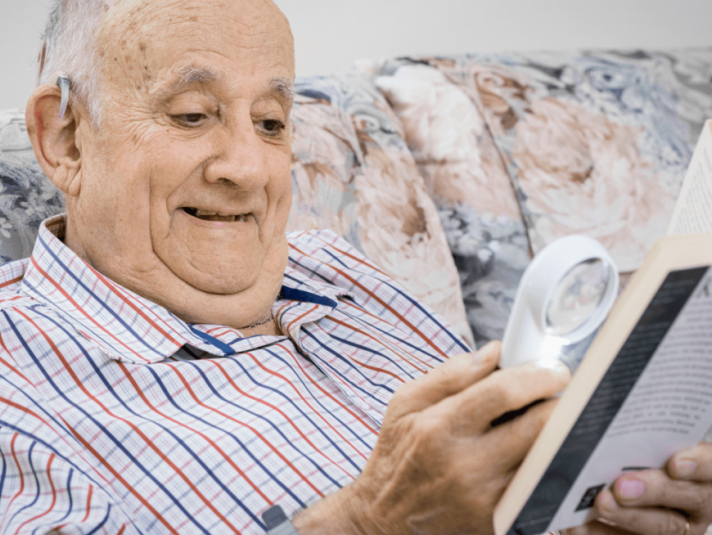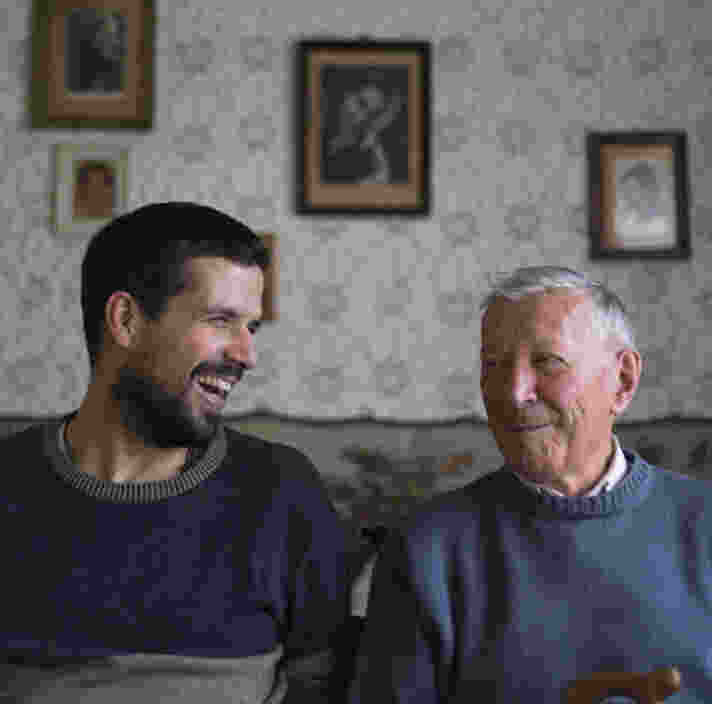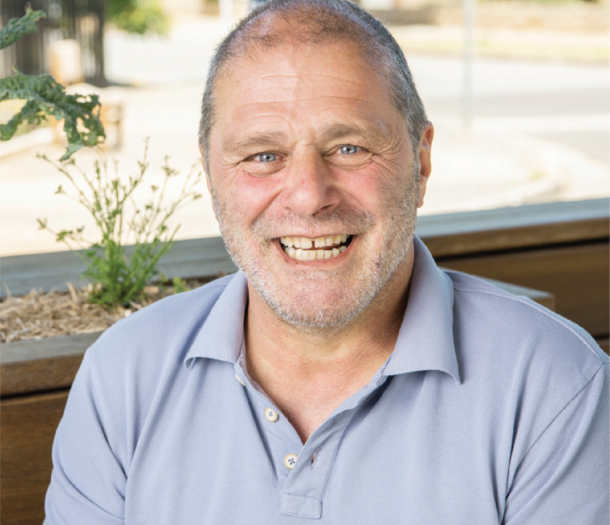On this page:
What is a neurological event that might affect your vision?
We’re here to assist you or someone you care about.
A neurological event is any condition that affects the brain, spinal cord and/or nervous system, such as:
- Stroke
- Acquired Brain Injury
- Optic Nerve Disorders
- Eye Movement Disorders
Guide Dogs SA/NT is here to support you to build your confidence and independence by providing the right services and strategies for your personal journey.
The information on this page is also available in the following formats:
-
Download
Neurological Vision Services
-
An accessible version of the document is also available for download here.

What services can you access and how will they help?
No matter how a neurological event happens, readjusting to daily life with a change in vision can be challenging.
Our Neurological Vision Services will support you in adjusting to vision changes by equipping you with valuable skills at home and in the community.
Our services include:
- Vision Assessments and Support: Receive specialist advice to find the right strategies and services to suit your level of vision now and as it changes.
- Occupational Therapy: Identify personal goals and learn the practical skills to achieve them. These can include cooking, returning to hobbies or finding new ones, caring for your family and living independently at home.
- Orientation and Mobility Support: Master the concepts and abilities needed to move through your environment safely and confidently.
- Assistive Technology Support: Whether it’s using your phone or specific aids like magnifying devices. Together we can help you find technology that suits your lifestyle and needs.
- Social and Educational Groups: Connect with others, make new friends, access peer support groups and socialise with
like-minded people.
Being equipped with the right tools and learning opportunities will ensure you can live as independently as possible following a neurological event causing vision loss.
Who is eligible for Neurological Vision Services?
We are here to help.
Regardless of your age, if you have suffered a neurological event that has caused a change in your vision, we have services to help you achieve your goals, big and small.
If you are still unsure of your eligibility, please contact our friendly Client Support Team via the form below.

What can support involve?
We tailor our services to suit your needs, whether it’s one or several sessions, or ongoing support.
Support can start with assisting in a safe discharge from hospital, transferring between providers or anything in between.
Depending on your individual circumstances, your support might take place at home, alongside family, with your wider support team, or out and about in the community.
We are proud to have partnered with Brain Injury SA (BISA) to present our Hospital Discharge Pack. It includes information about the services and supports available at Guide Dogs SA/NT and Brain Injury SA. Read the Hospital Discharge Pack by clicking here.
How is support tailored for your situation?
Every neurological event and vision condition is different.
Our services are tailored to suit your personal needs, lifestyle and support you to achieve your specific goals.
Following an assessment to understand your diagnosis and vision level, the next step is to discuss your goals and work towards them together. We can even work with your existing rehabilitation team to best support you.
As your needs change over time, our vision specialists draws on their qualifications and expertise as Occupational Therapists (OTs) and Orientation & Mobility Instructors (OMIs) to ensure we are able to best support you.
What funding is available?
Financial assistance may be available.
You may be eligible or already receiving funding from a range of sources including, but not limited to:
- NDIS
- My Aged Care
- Department of Veteran Affairs
- Children and Students With Disability (Department For Education)
Support for some of our services is also available through agreements with other support agencies, or our own charitable endeavors.
How do you make an enquiry?
Don’t wait for a diagnosis to contact Guide Dogs SA/NT about how we can support you.
If vision loss is impacting your daily life, reach out to our Client Support Team, who will help you take the next steps in your journey. You can contact the team:
- Via the form below
- Phone: 1800 757 738
- Email: support@guidedogs.org.au
If you’re ready to make a referral, we welcome self-referrals or referrals from any health professional, carer, family member or friend. Please ensure you have the consent of the person you would like to refer before requesting services on their behalf.
Request a service
Start the journey towards greater independence.
Referrals are welcomed from individuals, family members and health professionals.
Ready to continue?
Seems like you have filled this form earlier. Let’s pick up where you left off.
